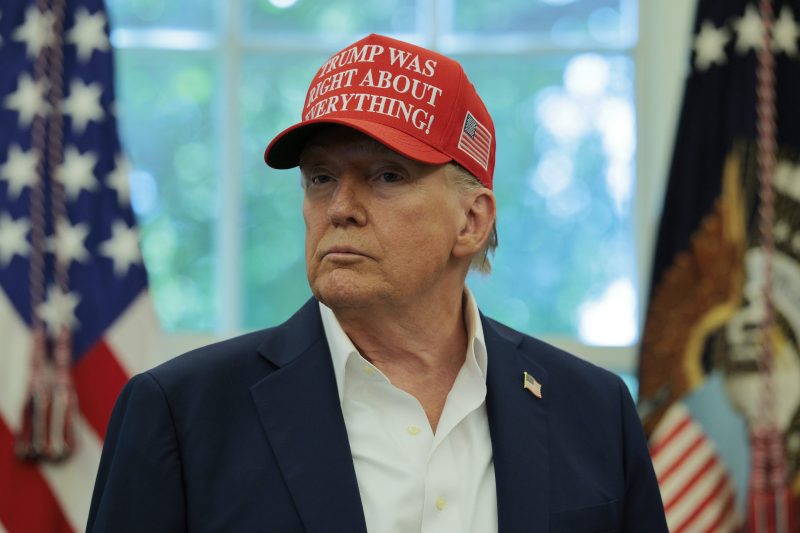Trump is bringing in enough revenue from tariffs to cut deficits by $4 trillion over the next decade, CBO says
3 minute readPublished: Monday, August 25, 2025 at 3:22 pm

Tariffs Could Reduce Deficits by $4 Trillion Over a Decade, CBO Says
Washington, D.C. – A new report from the Congressional Budget Office (CBO) indicates that tariffs implemented by the Trump administration could significantly reduce the federal deficit over the next decade. The CBO projects that if current tariff rates remain in place, the primary deficit would shrink by $3.3 trillion, with an additional $700 billion saved on interest payments, leading to a total deficit reduction of $4 trillion over ten years.
The report highlights that increased tariffs, particularly those targeting imports from China, Mexico, Canada, the European Union, and various goods like automobiles and steel, have raised effective tariff rates by approximately 18 percentage points compared to the previous year. This surge in tariff revenue translates to less need for federal borrowing, resulting in substantial savings on national debt interest payments.
This projection represents a significant revision from the CBO's June estimates. The agency previously projected a $2.5 trillion decrease in primary deficits and a $500 billion reduction in interest outlays, based on tariffs implemented between January 6 and May 13, 2025. The CBO utilized data from the Census Bureau, Customs and Border Protection, and the Treasury to generate these projections.
The report also notes that tariff revenue could partially offset deficits caused by new tax cuts and spending bills, such as the One Big Beautiful Bill Act, which the CBO estimates will raise deficits by $3.4 trillion. However, the CBO cautions that legal challenges and evolving trade negotiations could impact future tariff-related revenues.
The federal debt currently stands at about $37 trillion, and analysts are concerned about the upward pressure on interest rates and borrowing costs due to rising debt levels. The Committee for a Responsible Federal Budget (CRFB), a nonpartisan budget watchdog, estimates that Trump's tariff regime, if permanent, could reduce the deficit by up to $2.8 trillion over the next decade. The CRFB has also warned that the nation's finances have deteriorated since January.
Economists have noted that tariffs function as a sales tax on American consumers, raising concerns about higher consumer prices and potential trade tensions. The CBO's projections assume the continuation of current tariff regimes, acknowledging that changes in trade policy or international negotiations could alter the fiscal outlook.
BNN's Perspective: While the potential for significant deficit reduction through tariffs is noteworthy, it's crucial to consider the broader economic implications. The potential for increased consumer prices and the impact on international trade relations warrant careful consideration. A balanced approach that weighs the benefits of deficit reduction against potential economic drawbacks is essential.
Keywords: tariffs, deficit, CBO, Trump, revenue, trade, debt, interest payments, economy, budget, CRFB, China, Mexico, Canada, European Union, One Big Beautiful Bill Act